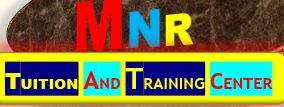Course Title: WordPress Development and Website Design
Course Overview: This course introduces students to WordPress, a popular content management system (CMS) for building websites. Students will learn how to set up, customize, and manage WordPress websites, including themes, plugins, content creation, SEO, and more.
Course Duration: 8 weeks (2-3 hours per week)
Module 1: Introduction to WordPress
- Overview of WordPress and its features
- Advantages of using WordPress for website development
- Installing WordPress locally and on a web server
- Understanding the WordPress dashboard and admin interface
Module 2: WordPress Basics
- Understanding WordPress terminology (posts, pages, categories, tags)
- Creating and managing content (posts, pages, media)
- Organizing content with categories and tags
- Customizing user profiles and roles in WordPress
Module 3: WordPress Themes
- Introduction to WordPress themes and their importance
- Installing and activating themes in WordPress
- Customizing theme appearance and layout
- Using child themes for customization and updates
- Best practices for choosing and customizing WordPress themes
Module 4: WordPress Plugins
- Overview of WordPress plugins and their functionality
- Installing and activating plugins in WordPress
- Exploring essential plugins for SEO, security, performance, and more
- Configuring and customizing plugins to extend WordPress functionality
- Best practices for managing plugins and updates
Module 5: WordPress Customization
- Customizing WordPress themes using the Customizer
- Adding custom CSS and JavaScript to WordPress themes
- Creating custom page templates and template parts
- Customizing WordPress menus, widgets, and sidebars
- Using the WordPress REST API for customizations
Module 6: WordPress Security and Maintenance
- Understanding common security threats in WordPress
- Implementing security best practices (strong passwords, secure hosting)
- Using security plugins to protect WordPress websites
- Performing regular maintenance tasks (updates, backups, monitoring)
- Troubleshooting common WordPress issues
Module 7: WordPress SEO
- Introduction to SEO (search engine optimization) for WordPress
- Optimizing content for search engines (keywords, titles, meta descriptions)
- Configuring SEO plugins (Yoast SEO, All in One SEO Pack)
- Creating XML sitemaps and submitting them to search engines
- Monitoring and analyzing website traffic with Google Analytics
Module 8: WordPress E-commerce and Membership Sites
- Introduction to e-commerce with WordPress (WooCommerce)
- Setting up an online store with WooCommerce
- Managing products, orders, and payments in WooCommerce
- Creating membership sites with WordPress plugins (MemberPress, Paid Memberships Pro)
- Configuring membership levels, subscriptions, and access controls
Module 9: WordPress Multisite
- Understanding WordPress Multisite and its use cases
- Setting up a WordPress Multisite network
- Managing multiple websites from a single WordPress installation
- Configuring and customizing individual sites within a Multisite network
- Best practices for managing and maintaining a WordPress Multisite network
Module 10: Advanced WordPress Development
- Introduction to custom post types and taxonomies
- Creating custom fields and meta boxes in WordPress
- Developing custom themes and plugins for WordPress
- Using WordPress APIs and hooks for customization
- Deploying WordPress websites to production servers
Module 11: WordPress Performance Optimization
- Understanding website performance optimization
- Analyzing website performance with tools like Google PageSpeed Insights
- Implementing performance optimization techniques (caching, minification, lazy loading)
- Optimizing images and media files for web delivery
- Monitoring and maintaining website performance over time
Module 12: WordPress and Accessibility
- Understanding web accessibility and its importance
- Evaluating WordPress themes and plugins for accessibility
- Implementing accessibility best practices in WordPress websites
- Testing WordPress websites for accessibility compliance
- Improving usability and inclusivity in WordPress development
Module 13: WordPress Design Trends and Best Practices
- Exploring current design trends in WordPress websites
- Understanding user experience (UX) principles for WordPress design
- Implementing responsive design techniques for mobile-friendly websites
- Incorporating multimedia and interactive elements in WordPress designs
- Best practices for designing visually appealing and user-friendly WordPress websites
Module 14: WordPress Community and Resources
- Getting involved in the WordPress community (WordCamp, Meetups)
- Exploring online resources for WordPress developers and designers
- Contributing to the WordPress project (core, themes, plugins)
- Staying up-to-date with WordPress news, updates, and releases
- Networking and collaborating with other WordPress professionals
Module 15: Capstone Project
- Students will work on a capstone project to apply the skills learned throughout the course
- Project topics may include building a custom WordPress theme, developing a WordPress plugin, creating an e-commerce store, or redesigning an existing WordPress website
Assessment:
- Assignments and projects after each module
- Mid-term and final exams covering the entire syllabus
- Evaluation of the capstone project
